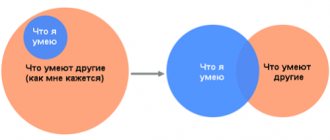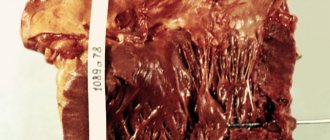Why do people faint?
The most common cause of fainting in relatively healthy people is low blood pressure. Most often, the danger of losing consciousness awaits girls of asthenic build, suffering from hypotension, not engaged in physical labor and not attending sports clubs. Fainting can occur due to a sharp decrease in already low blood pressure from unusual exercise or a jump in atmospheric pressure. It only takes a slight disruption in the blood supply to the brain to lose consciousness. However, one should not think that this happens to them at every step. Even in hypotensive patients, full-blown fainting occurs quite rarely and is far from sudden. Long before possible fainting, the state of health deteriorates so much that it would not occur to a person to engage in acrobatics or even go to work. In fact, instead of losing consciousness with low blood pressure, in most cases a semi-fainting state occurs, in which physical capabilities are limited, but self-control is still not impaired.
The second common cause of fainting is a disturbance in the concentration of glucose in the blood. This usually happens with diabetes. But diabetics are well aware of the intricacies of the issue, so we will not dwell on this here. The possibility that diabetes developed unnoticed and suddenly manifested itself as fainting is excluded. A much more likely cause of low blood sugar is hunger. It would seem that the years when people in our country were starving are already far behind us. But don't be surprised. The times of hunger from lack of food have passed, but the times of voluntary refusal of food have come. And again, the victims are young girls who want to acquire an asthenic appearance at all costs. Let us now leave aside the issue of perverted male tastes cultivated in modern megacities, and the fact that for a normal man it is natural to be attracted to women with a developed pelvis and sufficient fat content in the body. Let us only note that not everyone and not everyone succeeds in losing weight by directly cutting calories. But the opposite effect in the form of obesity after stopping the diet will definitely occur. Treatment for excess fat requires proper physical activity and proper nutrition. Then you won’t have to scare yourself and others by fainting.
If the loss of consciousness did not occur due to abnormal blood pressure or blood sugar levels, then most likely the cause is a serious illness that must be treated immediately and professionally. It makes no sense to describe these diseases here, because they do not begin with fainting, and those who suffer from them are well aware of them. This also includes fainting during menstruation and pregnancy. Therefore, you should not be afraid that some secret disease is developing unnoticed in the body, and then suddenly begins to lead to loss of consciousness. Of course, there are cases of sudden stroke, when a vessel bursts or a blood clot breaks off, but in this case everything is clear. This will not go away on its own, only to faint again later. So there is no need to be afraid. Instead, you need to monitor your health and firmly know that with normal body temperature, blood pressure and a healthy diet, you will not be able to lose consciousness.
What not to do
If symptoms of lightheadedness develop, do not continue with physical or mental activities. Immediately stop driving or operating anything that requires high levels of alertness.
Do not increase or decrease blood pressure to relieve dizziness if blood pressure readings are normal. Do not use medications not prescribed by your doctor.
Do not try to independently determine the cause of dizziness and loss of consciousness, do not self-medicate. If symptoms develop frequently, seek medical attention.
Fear of losing consciousness
The fear of losing control of oneself in general, and the fear of losing consciousness in particular, are quite common fears. They arise, as a rule, not out of nowhere, but after attacks of dizziness or semi-fainting states that occur for one reason or another. In everyday life, you need to learn to clearly distinguish between the fear of loss of consciousness and symptoms that foreshadow a possible fainting. And just as clearly understand that these are completely different things. Precursors of fainting are, first of all, weakness, which is often accompanied by a specific sensation in the stomach, reminiscent of nausea. This is most often accompanied by ripples or darkening in the eyes and ringing in the ears, as well as coldness and numbness of the body, weakness in the muscles, especially the legs. There are also special sensations in the lower extremities, reminiscent of tingling or tingling. If such a condition occurs, it is necessary to immediately stop work, especially responsible work or related to other people, sit down or lie down. Most often, a cup of strong and sweet tea or coffee helps, with the exception of those cases that are associated with existing diseases, and which everyone is well aware of. And, of course, an influx of cool fresh air.
Fainting with vegetative-vascular dystonia
Dizziness and periodic fainting interfere with normal life, causing panic and nervousness in the victim and others. It is necessary to know the characteristic signs of vegetative-vascular dystonia during an approaching attack and be able to cope with this syndrome.
Presyncope signs of VSD
It is correct to call VSD (vegetative-vascular dystonia) autonomic dysfunction. This disease is caused by disturbances occurring in the body for many reasons. The autonomic nervous system controls the functioning of all vital organs. Humans are not allowed to interfere with its activities. With autonomic dysfunction, disorders of connections between the brain and body systems occur:
- digestive;
- cardiovascular;
- hormonal;
- respiratory;
- urogenital;
- neuropsychic.
Disturbances in the functioning of a certain system cause their own symptoms of vascular dystonia. The symptoms are:
- psychoneurological: irritability, dizziness;
- cardiovascular: tachycardia, heart pain;
- respiratory: shortness of breath, lack of air;
- digestive: vomiting, nausea;
- urinary disturbance;
- sexual disorders;
- fluctuations in body temperature;
- changes in blood pressure.
Fainting does not occur suddenly. Loss of consciousness is briefly preceded by certain symptoms. Timely measures will help avoid fainting. Signs of impending danger:
- cold sweat;
- dizziness;
- lack of coordination;
- nausea;
- trembling fingers;
- darkening of the eyes when standing up;
- weakness;
- panic state;
- numbness of the limbs;
- fear of death;
- pale skin;
- fright;
- tinnitus.
Why do fainting and dizziness occur during VSD?
If a person’s vascular tone is sharply disturbed, oxygen starvation begins, this is facilitated by a sharp outflow of blood from the brain. This is accompanied by a drop in blood pressure - fainting occurs with VSD. A reduction in the flow of venous blood causes dizziness when standing up suddenly, and the vision begins to darken. The following reasons contribute to the occurrence of attacks:
- excitement;
- fear;
- stuffiness in the room;
- drinking alcohol;
- sudden change in weather;
- overwork;
- physical overload.
How to stop an attack of dizziness with vegetative-vascular dystonia
Knowing the symptoms of VSD in the acute stage, you can anticipate an attack and stop its manifestations. So that dizziness and fainting with vegetative-vascular dystonia do not turn out to be a surprise, you need to know what to do in such a situation. The main task is to expand the blood vessels. This requires:
- lower your head low, then blood will flow to it - at this time you need to sit;
- smell ammonia or a substance with a strong odor, such as perfume;
- rapid breathing in?
Is it possible to lose consciousness from fear?
It is possible, but this happens extremely rarely. To lose consciousness from fear, a combination of several circumstances is desirable. The main cause of fainting during severe fear is the body’s tendency to release large quantities of adrenaline, or a pronounced so-called adrenaline reaction. The second most important factor, complementing the first, are problems with the heart and blood vessels, as well as hypotension and asthenic physique. The picture will be complemented by impressionability and lack of habit of actively reacting to changing situations and independently solving problems that arise.
In principle, fainting from fear is no different from other types of fainting. The only factor that destabilizes the body is the release of a shock dose of adrenaline, which causes disruption of cerebral blood flow, especially if there are already problems with it. To a certain extent, people are able to resist unwanted physiological processes. So, for example, a loner who understands that there is nowhere to wait for help is, other things being equal, less likely to lose consciousness than a person surrounded by attention and care. In the same way, a mother with a baby in her arms will not allow herself to lose consciousness until the last moment.
Fear of fainting with VSD is very common. This fear can cross out all plans and joys, deprive you of not only pleasant walks, but also work. Where does the fear of fainting come from, and is it possible to cope with it on your own?
Reasons why fear of fainting may occur
- Fear of fainting usually appears with dizziness and unsteadiness of gait, which quite often occurs with VSD. The person begins to think that this is a pre-fainting state and, accordingly, is afraid of losing consciousness.
- Weakness of the body, overwork, chronic fatigue cause general weakness and, accordingly, the fear of losing consciousness. Meanwhile, chronic fatigue is a very common occurrence in anxiety or depressive disorders, because a person is constantly under stress. Also, chronic fatigue can be caused simply by overwork and lack of rest.
- VSD of the hypotonic type is characterized by a reaction to stress such as a decrease in blood pressure, inhibition of reaction and motor activity, weak legs, and a feeling of unsteadiness. All this contributes to a feeling of general weakness and, accordingly, the fear of fainting.
- Consequence of a panic attack with hyperventilation syndrome. Out of wild fear, a person breathes so quickly that dizziness occurs from an excess of oxygen. And a person mistakenly interprets this dizziness as a fainting state.
Impressionable and fearful VSDs, having once experienced any of the described conditions, soon begin to listen to themselves and are constantly afraid of fainting.
Life turns into complete self-control. A person needs to constantly monitor his heart, breathing, vision, and hearing. It’s as if he’s checking, asking himself: Am I zoning out? And of course, the anticipation of the unfortunate fainting is much worse than the fainting itself. VSDers fantasize that they will lose consciousness while lying in the bathtub (they will go headlong under the water and drown), on the balcony (they will fall out), while eating (food will get into the windpipe), on the street in the cold (no one will help, and death will occur from frostbite).
Dizziness and loss of consciousness
Dizziness is a sudden, imaginary feeling of moving all those objects that are around a person. Dizziness is accompanied by a loss of balance in the human body. Loss of consciousness, in turn, is characterized by a sharp decrease in blood flow in the brain area. The development of fainting occurs when a person is sitting or standing. Non-systemic dizziness is characterized by general weakness of a person. The patient feels nauseous, has ringing in the ears, and darkness in the eyes. He feels that he will soon lose consciousness. This type of dizziness signals the imminent onset of fainting. Moreover, this condition can be of varying degrees of severity, as well as of different nature.
It should be noted that the causes of non-systemic dizziness are arterial hypotension, asthenic conditions as a result of acute infectious diseases, various diseases of internal organs, chronic diseases and infections, and anemia. A few minutes before fainting, a person experiences pale skin, excessive sweating, rapid heartbeat, nausea, a feeling of fear, and darkness in the eyes. Loss of consciousness almost always occurs due to a sharp decrease in blood pressure, heart disease, as well as any autonomic disorders.
Dizziness and fainting can occur as a result of stressful situations. This could be fear, the sight of blood, being in a stuffy room for a long time, etc. In such cases, a person is worried about a headache, a feeling of numbness, muscle spasms, blurred vision, rapid heartbeat, etc.
Is it possible to faint from fear?
Symptoms of VSD such as unsteadiness, dizziness and lack of coordination are simply caused by fear and then the question is, is it possible to faint from fear? In fact, fainting from fear is a very rare occurrence. Imagine a military operation in which 1000 soldiers take part, everyone is very scared, how many of them will faint? Have you ever heard of such cases? This is a very rare occurrence and one soldier in a thousand may faint. Fainting with fear can only occur with a very strong hypotonic reaction to stress, and if you have just such a reaction, then it would have manifested itself since childhood, i.e. When you were a child, you would faint under extreme stress. In case of a hypertensive reaction to stress (and this is the case in most people), i.e. this is when the pressure rises and the heartbeat quickens, fainting is simply impossible, because the brain, on the contrary, is actively supplied with oxygen, usually even more than necessary. Therefore, if you are afraid, it is advised to reduce the amount of oxygen, breathe more slowly, breathe into a bag or your palms. Thus, the fear of losing consciousness during VSD is wrong; you can experience this fear a lot of time, but you will never faint. It's like being afraid all your life that you will suffer from an earthquake, while living in a place where there are no earthquakes.
Treatment
If the cloudy head appears due to lack of sleep, and the symptom is temporary, then just rest and get enough sleep. If this symptom occurs regularly, measures should be taken to avoid complications.
First of all, you need to see a doctor and find out the cause of the feeling of fog in your head.
If the source is astheno-neurotic syndrome, then it can be cured using psychotherapeutic methods. But first, you should exclude all provoking factors - stress, lack of sleep, excessive physical and mental stress.
If the influence of these factors is not reduced, then psychotherapy and drug treatment will not have the desired effect and will not eliminate unpleasant symptoms.
Medicines are used in severe cases. General restoratives, sleeping pills, antidepressants, antipsychotics and tranquilizers are considered effective.
If you have symptoms of VSD, you should consult a specialist. The therapist deals with this issue. To relieve symptoms, various medications are used - sedatives, sleeping pills, drugs for dizziness, to normalize blood pressure, etc. In addition to drug therapy, it is recommended to adjust your lifestyle:
- engage in light, non-competitive sports;
- learn to eat right;
- travel outside the city more often or simply go outside, taking long walks;
- eliminate stress factors;
- learn to go to bed and wake up at the same time;
- give up bad habits.
Physiotherapeutic procedures, acupuncture, and massage will help get rid of the fog in the head with VSD.
The symptoms of neurosis will be eliminated by drugs that normalize the activity of the autonomic nervous system, as well as drugs with a sedative effect.
In case of poor blood circulation in the brain, accompanied by fog in the head, medications with vasodilating and nootropic effects are prescribed. Pathology at the initial stage can be treated without drugs - with the help of massage and manual therapy.
Treatment of cervical osteochondrosis is aimed at relieving the inflammatory process and eliminating pain. For this purpose, NSAIDs, nerve blockade, and medications that normalize blood circulation are prescribed.
In addition to drug therapy, physiotherapy, physical therapy, massage, and manual therapy are recommended for people with cervical osteochondrosis.
How to get rid of the fear of fainting
Say: yes, I’m scared that I’ll faint somewhere on the street or in my own apartment, but in fact my fear is far-fetched, because fainting has never happened to me.
And, of course, if you are afraid of losing consciousness, you need to treat not only the soul, but also the body. It is necessary to remove chronic fatigue, if present. It may be worth visiting a therapist and undergoing a comprehensive examination. And then – strengthen your body and relax.
- Visit a psychologist to eliminate this phobia. And the fear of fainting is a real phobia, just like the fear of contracting a fatal disease or dying suddenly.
- Adjust your diet and daily routine. By getting enough sleep and getting all the necessary nutrients, a person feels much more energetic and stronger.
- Find yourself a hobby that will distract your soul from suffering. Just don’t overload yourself with mental work – this often aggravates phobias in people with ADHD.
- Walk in any weather. Don’t turn yourself into a houseplant, then changing weather won’t have such a strong impact on your well-being and mood. The main thing is to dress appropriately so as not to catch a cold or overheat.
- If the situation is severe, then you need to visit a psychotherapist and take a course of anti-anxiety medications.
The sooner you start to fight the problem, the faster the long-awaited healing will come. So start now.
» alt=”How to get rid of the fear of fainting”>
Among the many human phobias, there are both unfounded and those with a real basis. Among the latter is the fear of fainting during a panic attack. In most cases, people experience such fear for a reason; perhaps they have already experienced bouts of loss of consciousness. Why does this happen and how to get rid of such anxiety?
Mechanism of the phenomenon
First of all, you need to figure out whether the fear of losing consciousness during a panic attack is justified in medicine. The answer will not be clear. During an outburst of fear or anger, the body releases a large amount of adrenaline, as a result of which a person’s blood pressure rises and the pulse quickens. The body subconsciously tunes in to fight and mobilizes its strength.
Consciousness turns off when the pressure makes a sharp jump down. It follows from this that it is impossible to faint during an adrenaline rush. But similar symptoms are likely:
- blurred vision;
- loss of ground underfoot;
- instability;
- feeling like you are in a dream.
Causes
Fear of fainting - what causes it? A person is afraid that he will be judged or become an object of ridicule. The fear of a public reaction is often stronger than the fear for one’s health and of fainting as such. Perhaps the person is afraid that he will be mistaken for an alcoholic, mentally ill, robbed, or abandoned to his fate. If a person suffering from fainting has children, then there is also fear for them.
Fear of blood, injections and injury
This type of phobia is quite common. It is experienced by about 3% of the population. A phobia can be caused by the sight of blood, injury, injections, or any other medical procedure.
My neighbor was surprised how lushly my geranium grows: but I just water it correctly
Crawling climber. The man showed which guest crawled into his room on the 4th floor
Two "flower" homes in West Seattle act as an oasis in the cityscape
All people are naturally squeamish in such a situation, but some people have a more extreme reaction. They experience a temporary spike in heart rate, an increase in blood pressure, and then a sharp drop. This leads to sweating, nausea and fainting.
The fainting reaction is unique to this type of phobia, as opposed to the usual increased heart rate and increased blood pressure that occurs with other types of fear.
So why does the sight of blood or a needle cause a person to go weak in the knees, while he can fight a spider without fear, and calmly climbs to the highest Ferris wheel?










